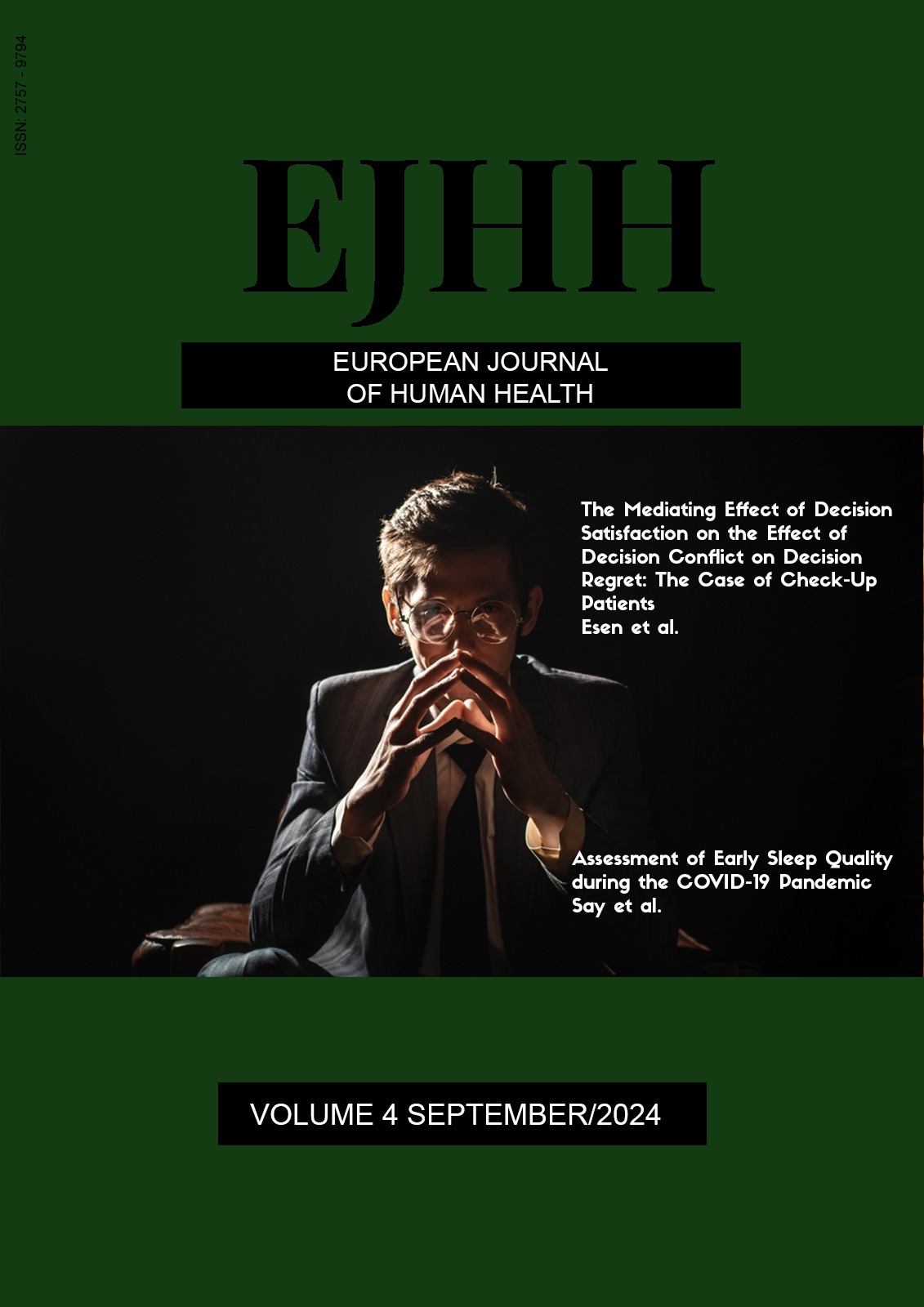THE MEDIATING EFFECT OF DECISION SATISFACTION ON THE EFFECT OF DECISION CONFLICT ON DECISION REGRET: THE CASE OF CHECK-UP PATIENTS
Author :
Abstract
Keywords
Abstract
Aim: Decision satisfaction is inherently linked to both decision conflict and decision regret. In this study, the mediating role of decision satisfaction on the effect of decision conflict on decision regret will be examined.
Methods: This cross-sectional study was conducted with 199 patients who were scheduled for a check-up and volunteered to participate in the study. Correlation, t-test, ANOVA, and SEM were performed. The study complied with the Strengthening the Reporting of Observational Studies in Epidemiology (STROBE) statement’s guidelines for reporting cross-sectional studies.
Results: According to the t test results, a significant difference in decision regret was found between those who regretted the last decision and those who did not regret the last decision. According to the ANOVA results, decision regret was not found to be significantly different between those who made the treatment decision. A mediating role of decision satisfaction was found in the effect of decisional conflict on decision regret.
Conclusions: The decrease in the effect of decisional conflict on decision regret in healthcare is related to the mediating role of patients' decision satisfaction levels. Our study will play a guiding role for health policy makers and all health professionals working for patient satisfaction in preventing individuals from experiencing decision regret and decision conflict and increasing their satisfaction with health services.





